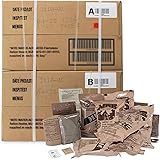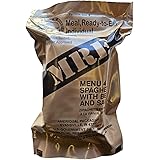Self-sufficiency benefits
Independence and Confidence
Have you ever just wanted to break away from relying on everyone else’s schedules and systems? Learning self-reliant living skills can give you a sense of independence that’s downright liberating. From gardening your own vegetables to fixing a leaky faucet, these skills make you less reliant on external services that you used to depend on.
There’s also a massive boost to your confidence. Imagine how empowered you feel when you solve your own problems! You don’t have to wait for the plumber or fret about the grocery delivery. It’s awesome knowing that you can handle whatever life throws your way.
Plus, being independent means you’re creating a lifestyle that’s uniquely yours. You set your own pace, make your own rules, and integrate habits that fit perfectly with your values and goals. That’s the kind of life worth investing in.
Environmental Impact
Reducing your carbon footprint is another significant benefit of self-reliance. When you grow your food or make your products, you’re cutting down on the pollution that’s generated by big farms and factories. It just feels good to know you’re doing your part to help the planet.
Consider how much waste is produced by packaged foods and disposable items. By learning how to grow, preserve, and repair, you’re significantly cutting down on waste. I’ve seen my trash output decrease dramatically since I started making these changes.
Not to mention, you get to eat fresh, organic produce without all those nasty pesticides and chemicals. It’s a win-win for you and Mother Earth.
Community Engagement
One of the unexpected perks of self-sufficiency is the sense of community it fosters. You tend to connect more with neighbors and local networks who share similar interests. It’s amazing how swapping home-grown veggies or homemade crafts can bring people together.
I’ve met some of the coolest folks through local gardening clubs and DIY workshops. The camaraderie and shared knowledge make the journey a lot more enjoyable and rewarding. You find out that while you’re becoming self-reliant, you’re never really alone.
== > What if ... Get a FREE Subscription to PREPARE
By investing in self-sufficiency, you’re not just improving your own life but also enhancing the social fabric of your community. That connection is invaluable and incredibly fulfilling.
Emergency preparedness
Natural Disasters
Have you ever been through a power outage or a storm and felt helpless? Being self-reliant prepares you for those “what if” scenarios. When natural disasters strike, knowing how to handle basic needs can make a world of difference.
I remember when a snowstorm hit my town, and people were scrambling to find food and warmth. Because I had already invested in emergency preparedness, I had enough supplies to last through the storm comfortably.
This peace of mind is priceless. You know you have the tools and skills to keep yourself and your loved ones safe, no matter what Mother Nature throws your way.
Financial Emergencies
Economic downturns and job losses are other areas where self-reliant skills come in handy. Having a stash of home-grown food or knowing how to make household necessities can cushion the blow during tough financial times.
I’ve seen families who have weathered job losses much better because they were prepared. They didn’t need to panic-buy because they had stockpiles and knew how to live frugally.
It’s comforting to know that even if your income takes a hit, you have the skills to stretch your resources further and even make some money by selling homemade goods.
Health Crises
In today’s world, health crises are becoming all too common. Being self-reliant can drastically affect how you handle medical or health emergencies. From basic first aid skills to knowing how to grow medicinal herbs, these skills can be lifesaving.
When the pandemic hit, many people faced shortages of basic health supplies. But those who’ve invested in self-reliant living haven’t been as affected. They had essential oils, herbal remedies, and other natural solutions ready to go.
Moreover, maintaining good health through organic foods and a less stressful lifestyle means you’re less likely to face medical emergencies in the first place. That’s the kind of preparedness that can’t be overlooked.
Cost-saving advantages
Reducing Daily Expenses
Talk about a game-changer! One of the best parts about being self-reliant is how much money you’ll save. Growing your own food and making your own products cuts down drastically on your grocery and household budgets.
I used to spend a fortune on fresh veggies, but now, my garden supplies most of what I need. Plus, I started making my own cleaning products which saves me a good chunk of change each month. It’s amazing what you can do when you put in a little effort.
This sort of investment pays off in the long run. The initial costs might be there, but over time, you’ll see significant savings that make it all worth it.
Energy Savings
Learning how to be energy-efficient is another huge cost-saving avenue. Simple skills like weather-proofing your home, using solar panels, or even just conserving water, can lower your utility bills.
I made some changes around my house like sealing drafts and using energy-efficient appliances. My utility bills went down by almost 30%! Those are savings I can definitely get behind.
Energy savings aren’t just good for your wallet; they’re also great for the planet. So you’re doing double duty by being both frugal and eco-friendly.
Less Dependency on Retail
Another perk? You’re no longer at the mercy of retail prices. When you know how to make or grow your own stuff, you don’t have to worry about inflation and rising costs in the market.
I used to dread holiday shopping, but now, I make personalized gifts that are way more special and cost a fraction of store-bought items. Plus, my friends and family appreciate the thought and effort that go into handmade gifts more than anything that comes with a price tag.
This shift in perspective is liberating. Realizing you have control over your expenses rather than being at the mercy of ever-fluctuating prices is empowering.
Skill-building opportunities
Hands-on Learning
Investing in self-reliant living skills means you’re always learning something new, and it’s usually pretty hands-on. From woodworking to knitting to fermenting foods, you gain practical skills that you can use and pass down.
I love the diversity of skills I’ve picked up. It’s incredibly satisfying to look at something and say, “Hey, I made that!” The sense of accomplishment is real, and it keeps you motivated to learn more.
These skills are not just practical but also therapeutic. Immersing yourself in a hands-on project can be a great way to unwind and destress.
Problem Solving
Being self-reliant forces you to become a better problem solver. When something breaks or goes wrong, you have to figure out how to fix it without immediately calling for help.
This mindset shift has been profoundly impactful for me. Instead of seeing problems as setbacks, I view them as challenges that can be overcome. It’s a mindset that spills over into every area of life.
Problem-solving skills are also transferable. Whether it’s fixing a broken fence or navigating a tricky work project, the ability to think critically and find solutions serves you well.
Creativity and Innovation
Self-reliance often demands creativity and innovation. When you’re making something from scratch or finding ways to repurpose old materials, you start to think differently.
I’ve come up with some pretty crafty and ingenious solutions around the house. Necessity truly is the mother of invention! It’s amazing how creative you become when you focus on making do with what you have.
This innovative mindset carries over to other areas of life too. You start to see possibilities where others see problems. It cultivates a more optimistic, can-do attitude overall.
FAQ
1. Is self-reliance expensive to start?
Initially, there might be some costs involved, like buying seeds, tools, or materials. But over time, the savings on groceries, utilities, and other expenses far outweigh the initial investment, making it a cost-effective choice.
2. Do I need a lot of space for self-reliant living?
Not necessarily. Even small apartments can accommodate container gardens, indoor herb gardens, and DIY projects. The key is to maximize whatever space you have and be efficient with your activities.
3. How can I get started with self-reliant living?
Start small. Pick one or two skills you’re interested in, like gardening or sewing. Take classes or watch online tutorials. As you become more comfortable, gradually add more skills to your repertoire.
4. What if I make mistakes?
Mistakes are part of the learning process. Everyone makes them, especially when starting something new. The important thing is to learn from them and keep going. Self-reliance is a journey, not a destination.






